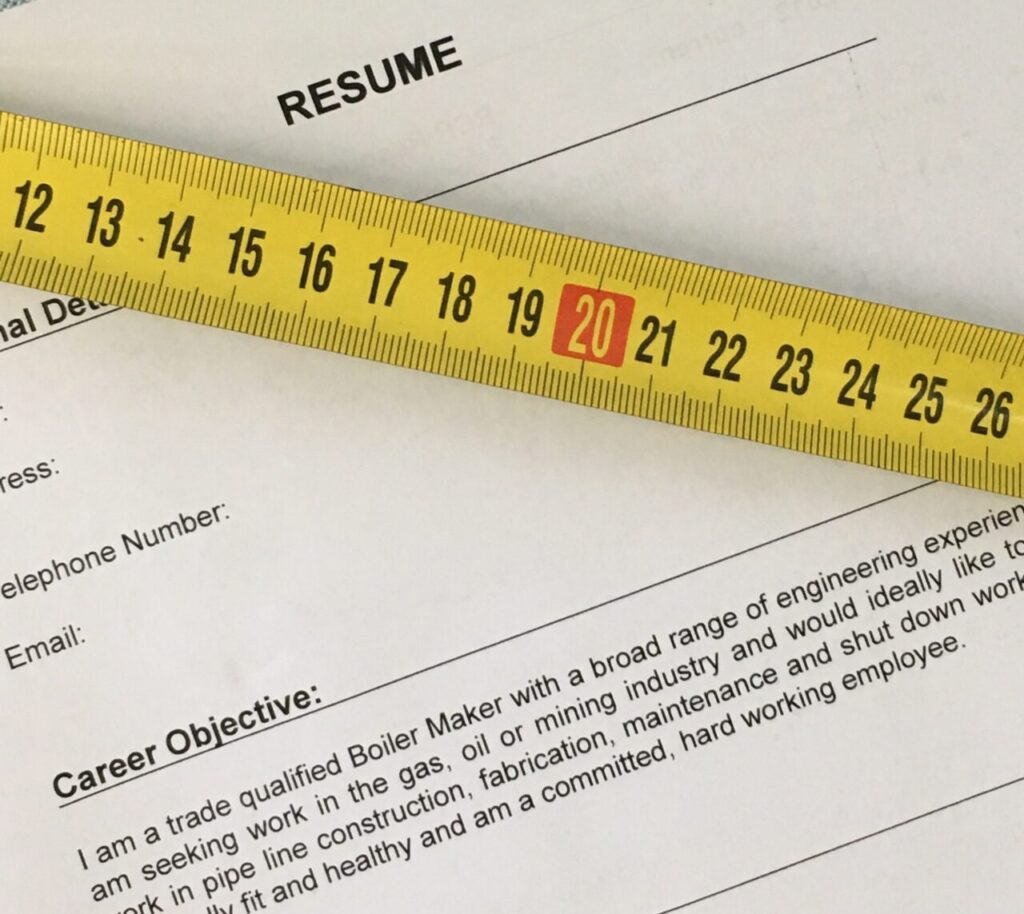Absolutely! It is one of the most common questions I get asked by job seekers. How long or how many pages should my resume be?
There seems to be many myths around how many pages a resume should be. People often tell me they’ve heard their resume should only be one page or three or no more than ten. My advice is to disregard any advice that tells you your resume should be a certain number of pages. It’s not about the number of pages; it’s about the quality and relevance of the information in your resume. Remember quality over quantity!
The length of your resume is going to depend on many different factors like:
- What stage you are at in your career
- What documentation is required for you to submit an application
- The type and level of the position you are applying for
Chances are if you are entering the workforce for the first time you are not going to have as much relevant information to include in your resume compared to someone who has a working history of 20 years. Or, your resume may be shorter if you need to provide a covering letter, key selection criteria and resume to apply for a position as some of the detail you’d normally include in your resume may be covered off through your key selection criteria response.
Getting the balance right between being too short or too long can be tricky. Given your resume is key to you securing an interview you need to make sure you nail it. Not enough detail and it can look like you don’t have the necessary skills, experience and expertise for the job but if you go too long you’ll bore the reader and your resume will be tossed aside before they even get to the page that really demonstrates your skills and expertise. No one wants to read a war and peace novel of a resume; besides who has the time and you need to keep some info up your sleeve for an interview. For info on how to get noticed quick smart you can check out one of my previous blogs here.
Every resume you submit for every job that you apply for should be tailored to suit the specific position. Sound like a lot of hard work? Trust me it is worth the effort! This is where the quality of the information you include in your resume is crucial. From your skills and abilities to your key responsibilities and achievements; this information needs to demonstrate your suitability for the position. You don’t want to just make statement after statement on your resume about your skills and experience; you want to demonstrate it with examples and provide context about the situation or the environment. After all, nobody ever writes on their resume that their communication skills are poor or they are not really a team player and prefer to work on their own. Adding this level of information may take up a little bit more space and make your resume that bit longer, maybe it means that your resume expands out from 4 pages to 5 pages but I can promise you that the reader is going to be engrossed in the quality of the information and will put you on the invite for interview list. They won’t ever be thinking oh this persons resume is 5 pages long, if they had kept it to 4 pages I would have interviewed them.
The same applies for people who don’t have much to include in a resume. If that is you, get comfortable with having a one page resume. We don’t want to read about what pets you have and their names, what sports you played in primary school, your family tree or that you won the achievement award in grade 6. I’d be pretty confident in saying this kind of information is not relevant to the position you are applying for so don’t just include it for the sake of bulking up your resume. I’d rather read a one page resume that is specific to the job I’m recruiting for, not a three page resume that is filled with irrelevant content.
Not sure if you have got the size of your resume just right? Get a fresh perspective; ask someone independent to have a read and provide you with some feedback. All too often we end up investing so much time in writing our own resume that it can be tricky to take a step back and look at our own resume from a recruiter or hiring managers perspective.


